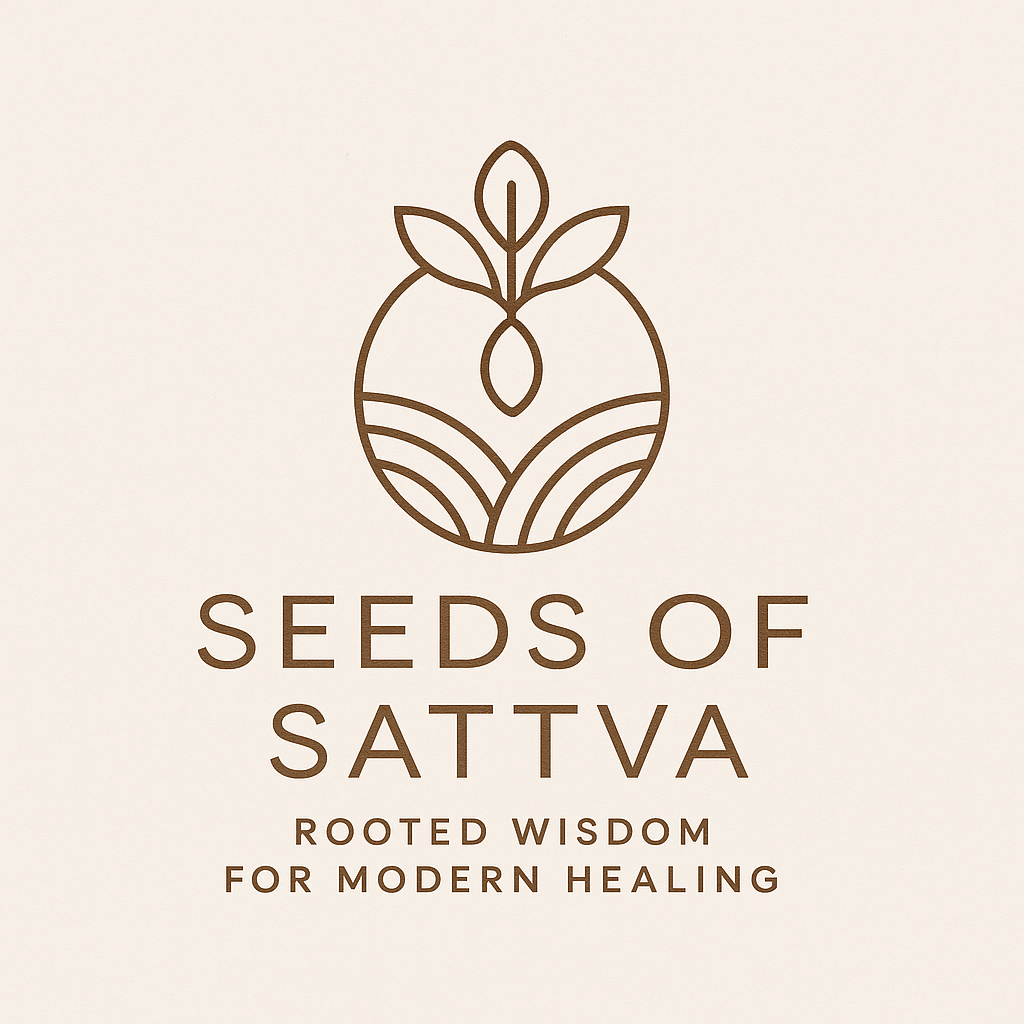Musings : Science is Spirit (Part 01)
Ancient traditions have always read the book of life in their own ways. Ayurveda, for example, understands prakriti—your inherent constitution—as a patterned expression of life’s design. What we now call genetics and epigenetics, Ayurveda would recognize as the dance of the doshas, written not in nucleotides but in the elemental building blocks of the cosmos.
Traditional Chinese Medicine speaks of jing, the constitutional essence we inherit at birth. Modern science would frame this as genetic potential and epigenetic resilience—the energy written into us before we ever take our first breath. In both views, what you’re born with is precious, finite, and shaped by how you live.
In the realm of healing, plant pharmacology and energetic medicine are not opposites but partners. Chemistry measures alkaloids and active compounds; the subtle traditions measure the plant’s personality, its temperature, its vibrational effect on mind and spirit. Both are real. Both matter.
The Buddha spoke of emptiness and dependent origination—how everything arises in relationship, without independent self. Systems thinking and biology echo the same truth: no cell, organism, or ecosystem exists alone; each is a node in an ever-changing network.
Vedanta and Tantra teach the correspondence of microcosm and macrocosm—that the pattern of the universe lives within us. Today, our satellites, telescopes, and data models show the same fractal resonances at every scale.
Indigenous cosmologies remind us that observation and ceremony are both ways of knowing. Sky-watching, river-reading, and tracking animal migrations are empirical acts—yet they are also woven into story, prayer, and song. These ways of seeing are not primitive precursors to science; they are science, carried in sacred form.
Even in the modern era, information theory whispers a familiar refrain: the universe is made of pattern. In spiritual language, we could say it is made of meaning. The code—whether in DNA or cosmic law—is the common tongue of creation.
Perhaps the “division” between science and spirit has only ever been a trick of translation. The same truth hums through equations and chants, through the spiral of a fern frond and the spiral of the double helix. Whether you read it in scripture or sequence data, it’s all God’s handwriting.
Books That Bridge Science and Spirit
The Tao of Physics – Fritjof Capra
Parallels between modern physics and Eastern mysticism from a physicist’s perspective.The Dancing Wu Li Masters – Gary Zukav
Conversational exploration of quantum mechanics and its spiritual connections.Quantum Enigma: Physics Encounters Consciousness – Bruce Rosenblum & Fred Kuttner
Physicists examine the strange relationship between quantum measurement and consciousness.The Biology of Belief – Bruce H. Lipton, Ph.D.
A cell biologist explains how perceptions can influence biology via epigenetics.The Cosmic Serpent: DNA and the Origins of Knowledge – Jeremy Narby
An anthropologist connects molecular biology with shamanic cosmology.Life on the Edge: The Coming of Age of Quantum Biology – Johnjoe McFadden & Jim Al-Khalili
Shows how quantum effects may operate in living systems, including DNA.The Field – Lynne McTaggart
Investigative look at the “Zero Point Field” and its implications for reality.A Brief History of Everything – Ken Wilber
Integrates science, psychology, and spirituality into a unified worldview.The Self-Aware Universe – Amit Goswami, Ph.D.
Quantum physicist argues that consciousness—not matter—is the ground of being.Entangled Minds – Dean Radin, Ph.D.
Scientific studies of psi phenomena through the lens of quantum theory.Biocentrism – Robert Lanza, M.D.
A biologist proposes that life and consciousness create the universe.Mind into Matter – Fred Alan Wolf
Quantum physicist explains how consciousness shapes the physical world.Ishmael – Daniel Quinn
A philosophical novel exploring humanity’s relationship with nature, civilization’s myths, and the possibility of living in balance with the Earth.



